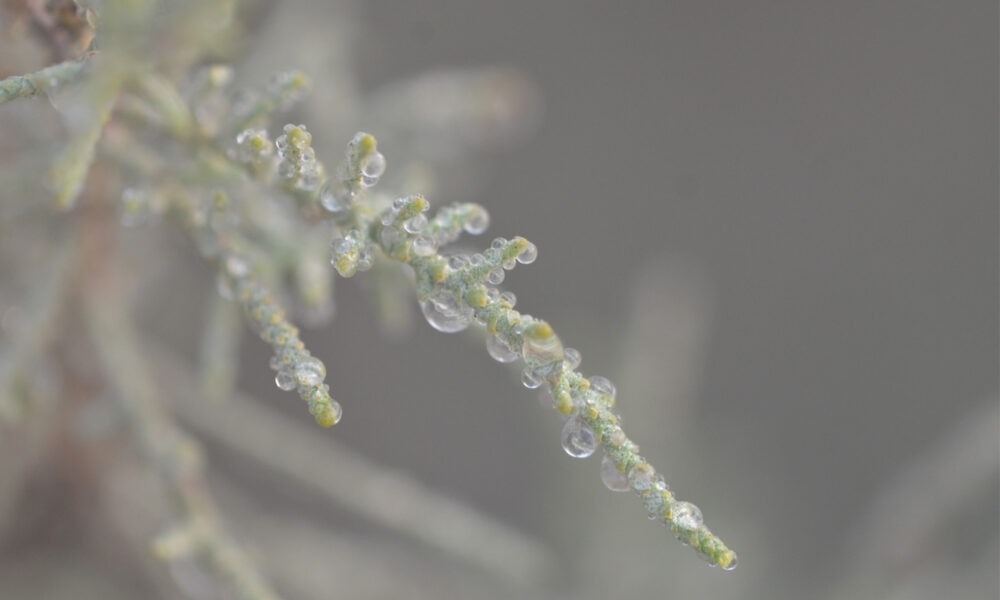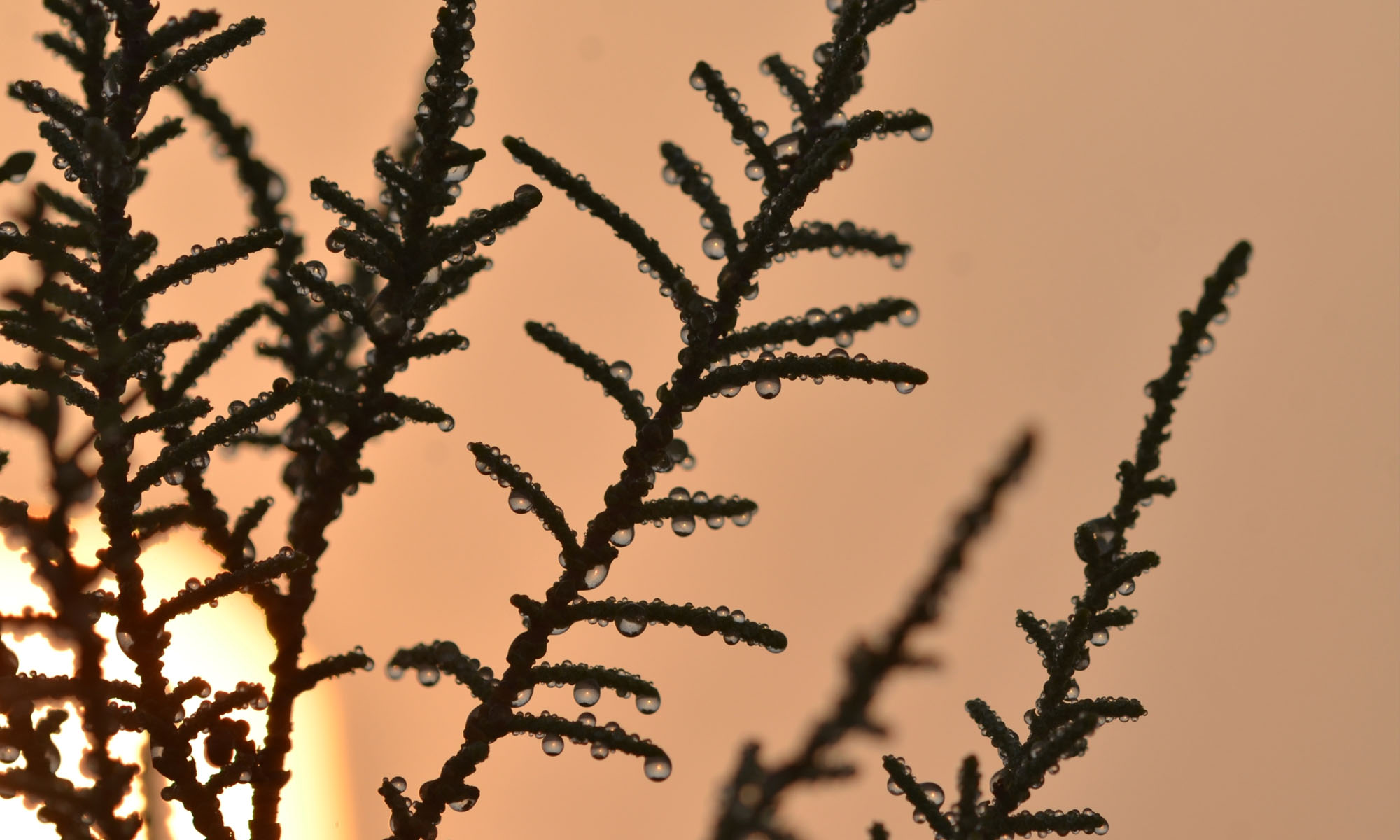News
Meet The Desert Shrub That Absorbs Water From The Air
The Tamarix aphylla plant has the potential to revolutionize our approach to water collection and management.

In the unrelenting heat of the UAE desert, scientists from NYU Abu Dhabi’s Smart Materials Lab have discovered the secret of one of the plant world’s most interesting and possibly useful species — Tamarix aphylla. This unassuming desert shrub can extract water from thin air, and tears up the rulebook on survival in one of the world’s harshest environments.
Marieh Al-Handawi, a Postdoctoral Associate, and her partner, Professor Panče Naumov, have made a groundbreaking discovery about Tamarix aphylla that could revolutionize our approach to water collection in arid regions. The desert shrub’s roots absorb hyper-saline water from the sandy soil, carefully filtering away the salt and expelling it as a concentrated solution onto the outer surface of its leaves as a mixture of over ten different minerals.

The crystalized minerals on the plant’s leaves possess a remarkable ability to attract further moisture from the air, even at humidity levels of just 55%. This collected moisture condenses on the leaves’ surface and is rapidly absorbed, creating a cyclical process that can continue indefinitely.
Lead author of the research, Marieh Al-Handawi, has high hopes for the team’s findings, explaining: “They also open prospects for designing environmentally benign formulations based on a biogenic salt mixture that could be used for efficient harvesting of aerial water or cloud seeding at low humidity. This holds the promise of revolutionizing cloud seeding practices by rendering them more effective and environmentally friendly while also aligning with our responsibility to use the planet’s scarce water resources wisely”.
Also Read: Canadian University Dubai Students Create Smart Garbage Bin
In a world where fresh water is becoming increasingly scarce, Al-Handawi and her team’s research could prove to be game-changing, with alternative water-harvesting technologies becoming a hot topic in the MENA region in particular.